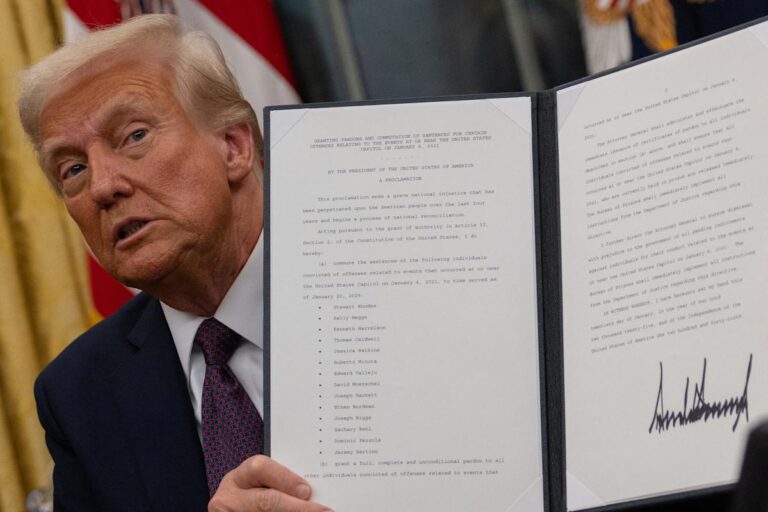DOJ Supports Reimbursement for Pardoned Jan. 6 Defendants
In a significant legal development, the Department of Justice (DOJ) has filed a motion indicating that certain defendants pardoned for their involvement in the January 6, 2021, Capitol riots should be reimbursed for restitution paid towards repair costs. This filing was made before U.S. District Judge Tanya Chutkan as part of an ongoing legal matter.
Case Overview of Stacy Hager
The court filing specifically pertains to Stacy Hager, a former defendant who is seeking the return of $500 he paid in restitution following his misdemeanor conviction. Hager’s request was submitted in February, prompting the DOJ to analyze his case within the context of recent clemency grants.
In the DOJ’s motion, Assistant U.S. Attorney Adam Dreher stated, “The government agrees that Hager is entitled to the return of those funds.” This acknowledgment highlights the complex legal implications following the pardons granted by former President Donald Trump.
Impact of Presidential Pardons
On his first day in office, President Trump pardoned over 1,500 individuals, fulfilling a campaign promise to address the legal consequences faced by those charged during the Capitol attack. Following these pardons, appeals courts effectively halted all related proceedings, which included vacating many convictions.
Dreher emphasized that since Hager’s case had an active appeal when he received clemency, reimbursement is warranted. However, he clarified that individuals who received pardons but did not have ongoing appeals would not be entitled to repayment, as their convictions still stand.
Restitution for Capitol Repairs
Many defendants connected to the January 6 insurrection were obligated to contribute financially towards the repairs of the Capitol, which incurred approximately $3 million in damage. For those convicted of felonies, the restitution typically amounted to $2,000, while misdemeanor convictions generally required a payment of $500.
The restoration work at the Capitol commenced promptly after the attack. Currently, it remains uncertain whether any funds from the restitution are still available, or how the reimbursement process would unfold should Judge Chutkan decide in favor of Hager and potentially other defendants.
Future Legal Implications
The Architect of the Capitol has not provided comments regarding the status of the restitution pool or its allocation for the repayment of pardoned defendants. As these proceedings continue, the decisions made by Judge Chutkan will likely set important precedents for similar cases in the future.
The DOJ’s position on this matter underscores the evolving legal landscape surrounding the aftermath of the January 6 Capitol riots and the complexities associated with presidential pardons.
